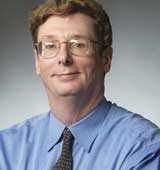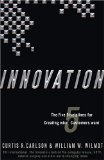Browse Executive Interviews
Subject wise
- 21st Century Organization
- Blue Ocean Strategy
- Bottom of the Pyramid
- Brands and Branding
- Building Ethical Organizations
- Building High Performance Teams
- Business Model Innovation
- Business Process Outsourcing ( BPO )
- Business Schools and Business Ethics

- Change Management
- Co-Creation
- Collaboration
- Competing for Customers
- Corporate Entrepreneurship
- Corporate Social Responsibility ( CSR )
- Customer Relationship Management ( CRM )
- Decision Making
- Emerging Markets
- Executive Development
- Family Business
- Global Economy and Global Managers
- Global Strategy
- Government and Business
- Indian IT Industry
- Innovation
- Knowledge Management
- Knowledge Process Outsourcing ( KPO )
- Leadership
- Learning Organizations
- Level 5 Leadership
- Managing Complexity
- Managing Downturn without Downsizing
- Managing Troubled Times
- Marketing in a Downturn
- Midlife Crisis
- Multicultural Teams
- Organizational Loyalty
- Private Labels
- Rebranding Strategies of Bank of Baroda
- Reverse Innovation
- Social Cause Marketing
- Social Entrepreneurship

- Social Networking

- Staying on Top, Always
- Steve Jobs
- Strategy Execution
- Talent Management
- The China Factor
- The Making of a CEO
- Virtual World
- Why Good Companies Go Bad
- Women Entrepreneurs
- Women Executives
Publishing Year
Publishing Year
Interview with Curtis R Carlson on InnovationNovember 2006 - By Dr. Nagendra V Chowdary |
|||||||||||||

Curtis R Carlson became president and chief executive officer of SRI International in December 1998. Previously, he spent over 20 years with Sarnoff Corporation, a wholly owned SRI subsidiary. In 1973, Carlson joined RCA Laboratories, which became part of SRI in 1987 as the Sarnoff Corporation. As head of Ventures and Licensing at Sarnoff, he helped found more than 12 new companies. He started and helped lead the high-definition television (HDTV) program that became the US standard and in 1997 won an Emmy® Award for outstanding technical achievement for Sarnoff. Another team started and led by Carlson won an Emmy® for Sarnoff in 2000 for a system that measures broadcast image quality.
from Worcester Polytechnic Institute. In 2002, he received the Dr. Robert H. Goddard Award from Worcester Polytechnic Institute for his professional achievements. Carlson was a visiting distinguished scientist at the University of Washington in 1998. He is a Kobe Ambassador for SRI's@contributions to Kobe, Japan. Carlson has served on many government task forces, including the Air Force Scientific Advisory Board, the US Army Research Laboratory Technical Assessment Board, and the Defense Science Board task force on biochemical defense. He was a member of the original team that helped create the Army's Federated Laboratories. He was a founding member of the National Information Display Laboratory (NIDL) at Sarnoff, a new model for government-industry technology development and commercialization, which grew into the National Technology Alliance. He has published or presented more than 50 technical publications and holds fundamental patents in the fields of image quality, image coding, and computer vision. He has written a book with William Wilmot called Innovation: The Five Disciplines for Creating What CustomersWant, published inAugust 2006 by Crown, a division of Random House. Innovation describes how SRI's unique process for innovation can be applied to all types of commercial and non-profit enterprises, including the government. Carlson is a Tau Beta Pi graduate in physics fromWorcester Polytechnic Institute, where he was named in Who's Who Among Students. His MS and Ph.D. degrees are from Rutgers University. He is a member of the Institute of Electrical and Electronics Engineers (IEEE) and Sigma Xi. Carlson played the violin professionally at 15 and it remains his primary avocation. |
|||||||||||||
1.
ICMR Innovation Case Studies
| |||||||||||||
Related Links
Books by Curtis R Carlson
Related Case Studies
- Motorola: Fostering Innovation?
- Dell Business Model (B): A Case for Business Model Innovation
- AMD's Technological Innovations: Converting Capabilities into Competitive Advantages
- EOS Airlines, World's First All-business Class Carrier: Low-cost Model in Long-haul Air Travel?
- European Football Clubs' New Business Model: The Prospects and Perils
- Open Innovation: The Case of P&G
